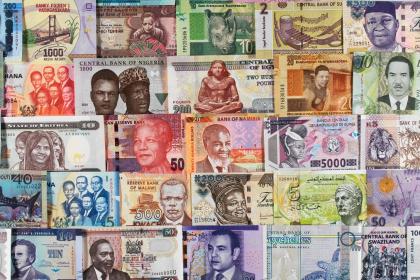A major challenge to sustainable development of peaceful societies around the world, particularly in developing countries, is represented by several criminal activities and tax-related illicit practices which are at the origin or associated with illicit financial flows (IFFs). Despite the urgency to limit the drain of financial resources from developing societies, the monitoring of IFFs has been limited due to a lack of a consolidated statistical methodology to measure them. As custodian agencies of SDG indicator 16.4.1, UNODC and UNCTAD have taken action to develop a global and comprehensive statistical methodology to measure the monetary value of inward and outward IFFs. The statistical and conceptual framework to estimate IFFs through a disaggregated, bottom-up approach has been developed and the methodology to estimate selected criminal and tax-related activities is currently being tested in selected countries of Latin America and Africa.
The measuring of IFF is particularly relevant in the Asia-Pacific region, that witnesses a consolidated presence of transnational organised crime groups active in the major trafficking activities. A number of conditions, such a rapid expansion of trade and commercial activities, have made this region particularly exposed to the risk of laundering of proceeds from transnational organised crime activities as well as the exploitation of legal trade routes to transfer abroad financial resources from illicit tax-related and commercial practices. In addition, inadequate legal frameworks and institutional arrangements in some areas in Asia and the Pacific represent a major IFF vulnerability in the region, making more challenging for jurisdictions to ‘follow the money’ and limit the drain of financial resources that are needed to ensure sustainable development.
Objective of the Project
The project aims to achieve the following objectives:
- To improve the statistical capacity of selected countries in Asia-Pacific to measure illicit financial flows and to make use of such metrics for targeted policy-making; and
- To improve the understanding of IFFs concepts and sources, and to enhance the use of data among national government officials in selected Asia-Pacific countries to better identify the main sources of IFFs (criminal and tax-related), and to provide relevant inputs to increase the effectiveness of legal frameworks and administrative measures.
Activities
- Organise an Expert Group Meeting to present, discuss and refine the methodology to estimate illicit financial flows, with the participation of representatives from national statistical offices, international agencies and selected experts.
- UNODC HQ and UNCTAD will develop detailed guidelines on the implementation of the methodology at the national and regional levels.
- Conduct pilot studies in selected Asia-Pacific countries to test a refined methodology to produce statistics in Asia-Pacific countries requesting support for the implementation of the methodology. On the basis of results from pilot studies, produce policy briefs to illustrate patterns and levels of selected IFFs typologies and their broader impact.
- UNODC HQ and UNCTAD will produce analytical and methodological outputs with summary findings and analyses of the scope, magnitude and impact of different types of illicit financial flows and with methodological guidance to estimate illicit financial flows, together with recommendations on ways and tools to enhance statistical capacities of countries in Asia-Pacific to produce statistics to estimate illicit financial flows.
- UNODC ROSEAP will organize national trainings on the collection, compilation and use of data and statistics on illicit financial flows in each of the four selected countries in Asia-Pacific to improve statistical methods, identify characteristics and typologies of selected illicit financial flows and analyze data to derive policy implications.
- UNODC ROSEAP will organize national-follow-up meetings involving representatives of government bodies, think tanks and civil society to raise awareness on IFFs sources and typologies, disseminate results of pilot testing activities, and illustrate evidence from national policy studies. ESCAP will also organize a final regional seminar to present the overall results on IFFs data and methodologies, promote further understanding of IFFs in the region and to discuss future actions to improve capacities of governments to produce and use statistics on illicit financial flows.
Intended Outcomes
Outcome 1: Enhanced statistical capacity of selected countries in Asia-Pacific to produce statistics on illicit financial flows
Outcome 2: Improved understanding of IFFs concepts and sources, and enhanced use of data among national government officials in selected Asia-Pacific countries to better identify the main sources of IFFs (criminal and tax-related), and to provide relevant inputs to increase the effectiveness of legal frameworks and administrative measures.
Link to SDGs:
The 2030 Development Agenda sets out to significantly reduce illicit financial flows as one of the targets associated with Goal 16 (Target 16.4: By 2030, significantly reduce illicit financial and arm flows, strengthen the recovery and return of stolen assets and combat all forms of organized crime). In the list of indicators approved by the UN Statistical Commission (47th Session, March 2016), one of the two indicators identified to monitor this target is ‘Total value of inward and outward illicit financial flows, in USD’. UNODC and UNCTAD have been indicated as co-custodian agencies for this indicator, for which an established methodology and data collection system are currently under development and testing. The project will contribute to further develop this indicator and assist the national statistical offices of target countries to include the indicator and the related statistics in the regular data collection and estimates production systems.
As co-custodian Agencies of SDG 16.4.1, UNODC and UNCTAD have already set up a series of coordinated actions to estimate illicit financial flows associated with criminal activities, tax-related practices and corruption.
Monitoring and Evaluation
The implementing entity has scheduled the production of the three monitoring reports: 1st Annual Progress Report on 29 January 2021; 2nd Annual Progress Report on 28 January 2022; and Final report on 30 June 2023.
The indicator of achievement will be monitored through:
- A data availability and quality assessment questionnaire will be sent to NSO and other relevant institutions producing IFF-related data. This tool will allow to monitor the feasibility to implement the methodology on selected IFF-related activities and to propose targeted action plan to respond to poor data availability to allow the country to set up a process of data production and exchange.
- The data collection questionnaire will be used as a base to collect data of IFF-related topics, as well as input for the production of estimates on IFFs and IFFs-related topics (such as the monetary size of selected illegal markets).
- UNODC will contact national statistical offices and other relevant providers of IFF-related data to verify that the data availability assessment tool and information collected in the testing exercise are reflected in the data collection plans of these institutions.
- Training will be supervised by UNODC staff, who will collect data on participant and will administer a final practical exercise to ensure that adequate training has been administered. The training is planned to be administered in Q1 in 2022, after the testing exercise will be completed.
Evaluation of this project will be undertaken in line with UNODC Evaluation Policy and Handbook. UNODC’s Independent Evaluation Section (IES) ensures that every independent evaluation meets UNEG Norms and Standards, oversees the whole evaluation-process, provides in-depth quality assurance of all deliverables, clears the evaluation team and is the sole approver of all evaluation deliverables. Moreover, the evaluation will fully consider the Development Account Evaluation Guidelines. The independent evaluation process is managed through Unite Evaluations, an integrated web-based evaluation management application maintained by IES to ensure full transparency. The evaluation team, consisting of independent evaluators, will use methodologies and techniques as determined by the specific needs for information. However, a mixed-methods approach of qualitative and quantitative methods is mandatory due to its appropriateness to ensure a gender-sensitive, inclusive methodology. Special attention shall be paid to an unbiased and objective approach and the triangulation of sources, methods, data, and theories. Rival theories and competing explanations must be tested once plausible patterns emerge from triangulating data to ensure validity of the findings.


